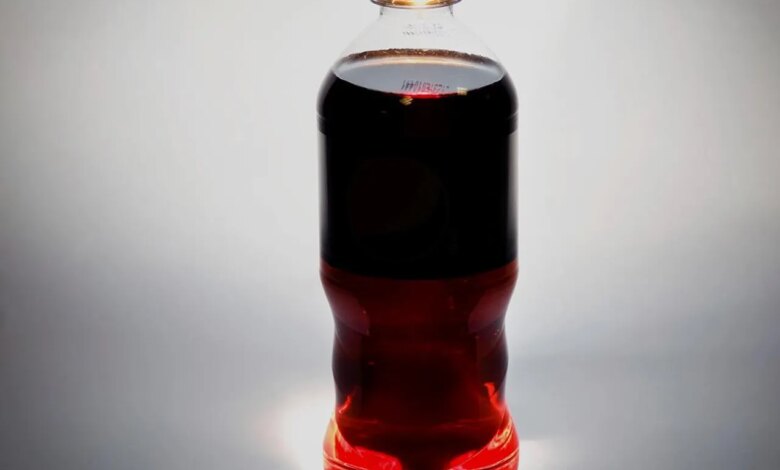Soda sweetener aspartame now listed as possible cause of cancer. But it is still considered safe

The World Health Organization’s cancer office has deemed the sweetener aspartame — found in diet soda and countless other foods — a “possible” cause of cancer, while a separate group of experts who looked at the same evidence said it’s still the sugar substitute. considered safe to a limited extent. quantities.
The various results of the coordinated assessments were released early Friday. One came from the International Agency for Research on Cancer, a special department of the WHO. The other report came from an expert panel selected by the WHO and another UN group, the Food and Agriculture Organization.
The Lyon, France-based cancer agency periodically assesses potential cancer risks but does not determine how likely they are to cause cancer in their evaluations which range from “possibly” carcinogenic to “probably” to carcinogenic.
Aspartame joins a category that includes more than 300 other possible carcinogens, including things like aloe vera extract, Asian-style pickled vegetables, and carpentry.
However, the guidelines for using the sweetener will not change.
“We are not advising consumers to stop consuming (aspartame) altogether,” said Dr Francesco Branca, WHO’s director of nutrition. “We just recommend a little moderation.”
Here’s a look at the announcement:
WHAT IS ASPARTAME?
Aspartame is a zero-calorie artificial sweetener that is about 200 times sweeter than sugar. It is a white, odorless powder and the world’s most widely used artificial sweetener.
Aspartame is approved as a food additive in Europe and the US and is used in numerous foods, drinks such as Diet Coke, desserts, chewing gum, medications such as cough drops, and foods intended to aid weight loss. It’s in tabletop sweeteners sold as Equal, Sugar Twin, and NutraSweet.
Aspartame was approved by the US in 1974 US Food and Drug Administration with an acceptable daily intake of 50 milligrams per kilogram of body weight. According to the FDA, a person who weighs 132 pounds (60 kilograms) would need to consume about 75 packets of aspartame to reach that level.
UN experts evaluated the safety of aspartame in 1981 and set the safe daily limit slightly lower, at 40 milligrams of aspartame per kilogram.
David Spiegelhalter, emeritus professor of statistics at the University of Cambridge, said the guidelines mean that “average people can safely drink up to 14 cans of diet soda a day … and even this ‘acceptable daily limit’ has a big built-in safety factor. ”
WHAT DO THE TWO GROUPS SAY?
The WHO’s cancer office, IARC, convened its expert group in June to assess aspartame’s potential to cause cancer. It based its conclusion that aspartame is “possibly carcinogenic” on human and animal studies that found “limited” evidence linking the compound to liver cancer.
In a separate review, experts from the WHO and the Food Agency updated their risk assessment, including the acceptable daily intake. They concluded that there was “no convincing evidence” at the levels currently consumed that aspartame is dangerous; their guidelines regarding acceptable levels of consumption remained unchanged.
The move comes weeks after the WHO said sugar-free sweeteners does not help with weight loss and may lead to an increased risk of diabetes, heart disease and early death in adults.
SHOULD I WORRY THAT I’M GETTING TOO MUCH?
Not as long as you don’t exceed the guidelines. The FDA said scientific evidence continues to support the agency’s conclusion that aspartame is “safe for the general population,” when kept within limits.
Almost any substance can be dangerous in excess, says David Klurfeld, a nutritionist at Indiana University School of Public Health-Bloomington.
“The dose makes the poison,” said Klurfeld, who previously served on an IARC panel. “Even essential nutrients like vitamin A, iron and water will kill you within hours if too much is consumed.”
SO WHAT SHOULD CONSUMERS DO?
WHO’s Branca said it was acceptable for people to consume a “fairly large” amount of aspartame without experiencing any adverse effects. “High consumers” might want to cut back, he said.
Dr. Peter Lurie, executive director of the Center for Science of the Public Interest, which previously nominated aspartame for IARC review, said the choice is easy for consumers.
“When it comes to beverages, our message is that your best bet is to drink water or an unsweetened beverage,” he said.
However, most people probably don’t pay much attention to IARC evaluations. The agency has previously classified processed meats such as hot dogs and bacon as carcinogens, specifically its link to colon cancer. That move surprised even others in the scientific community – the UK’s largest cancer charity assured Britons that eating a bacon sandwich now and then wouldn’t do them much harm.
WHAT DOES THIS MEAN FOR THE FOOD AND BEVERAGE INDUSTRY?
Food and beverage manufacturers say there’s no reason to avoid products containing aspartame.
“There is broad consensus in the scientific and regulatory community that aspartame is safe,” the American Beverage Association said in a statement.
WHO’s Branca said the agency generally advises food manufacturers to use “ingredients that don’t require too much sugar added.” Following the latest aspartame reviews, Branca said using sweeteners “is probably not the way to go.”
___
The Associated Press Health and Science division is supported by the Science and Educational Media Group of the Howard Hughes Medical Institute. The AP is solely responsible for all content.




